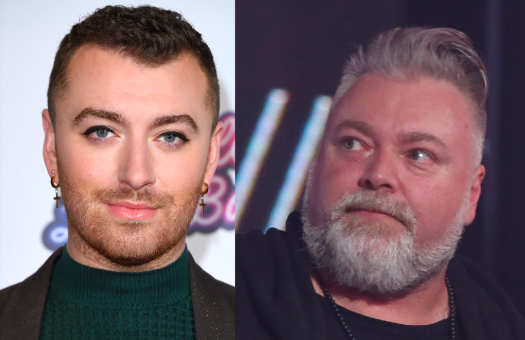Presenter claims Sam Smith’s pronouns means he can ‘use the N-word because he’s a Black woman’. He’s a cis white man

Kyle Sandilands objected to Sam Smith’s non-binary pronouns on air (Karwai Tang/ WireImage/Brendon Thorne/Getty
An Australian radio host was so angered by Sam Smith and their use of they/them pronouns that he has decided to “identify” as a Black woman and use the N-word.
KIIS FM host Kyle Sandilands, 48, was asked to use Smith’s correct pronouns before the non-binary star’s arrival on the show on Tuesday.
It was simply too much for Sandilands to bear, and he fumed that if he had to use non-gendered language he should also be allowed to use racial slurs.
“I’m sick of this. Why should I have to do this?” he raged. His co-host Jackie ‘O’ Henderson replied: “That’s the way it is these days, hun.”
“I’ll now be allowed to use the N-word then, because I identify as a Black woman,” Sandilands declared. “Is that right? Is that how it works?”
This is absolutely not how it works, because gender identity is innate and informed by social constructs, whereas race is external and enforced by cultural power structures.
The newsreader Brooklyn Ross attempted to intervene, clumsily misgendering Smith in the process. “You can just say [their] name,” he said.
Henderson promptly corrected him: “Their name, Brooklyn.”
Sandilands returned to the subject later in the show, insisting to anyone who cared: “I’m not buying into the ‘their’. I can’t. It’s too much. [Saying] ‘they’re an absolute sweetie,’ like there’s two of them.”
Again using male pronouns to refer to Sam Smith, Henderson suggested: “When you’re talking to [them], imagine you’re talking to The Veronicas. That’s how I do it.”
Sandilands was reportedly scheduled to interview Smith later that morning, but fortunately for everyone involved the star was interviewed by 23-year-old Mitch Churi instead.
Using correct pronouns is a small but impactful way that cis people can be allies to the trans and non-binary community.
Studies have shown that consistently using correct names and pronouns for trans and non-binary people significantly benefits their mental health and can reduce their rates of anxiety, depression and suicidal thoughts to almost the same levels as their cisgender counterparts.
Trans and non-binary people with accurate IDs are 32 per cent less likely to be classified as seriously psychological distressed, 22 per cent less likely to have seriously considered suicide in the past year, and 25 per cent less likely to have made a suicide plan, compared to those with no accurate IDs.

